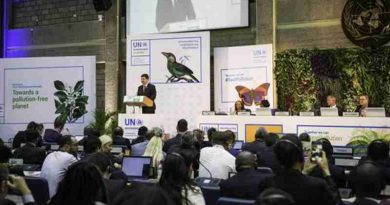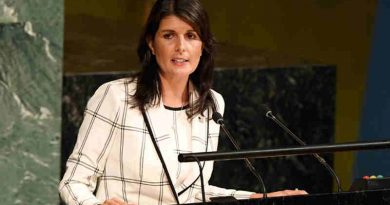Mali Crisis: Leaders Condemn the Coup
The members of the UN Security Council strongly condemn the forcible seizure of power from the democratically elected Government of Mali by some elements of the Malian armed forces.
They call on these elements to ensure the safety and security of President Amadou Toumani Touré and return to their barracks. And they demand the release of all detained Malian officials.
This Security Council statement was issued today, March 23, by Council President Mark Lyall Grant (United Kingdom).
The members of the Security Council call for the immediate restoration of constitutional rule and the democratically elected Government. They also call for the preservation of the electoral process as previously scheduled. The members of the Security Council urge all parties to exercise maximum restraint, refrain from violence and remain calm.
[ Also Read: Human Rights Violations during Congo Elections: UN ]Meanwhile, the members of the Security Council welcome efforts by the United Nations Office for West Africa (UNOWA) and international partners, especially the African Union and the Economic Community of West African States (ECOWAS), and further express their intention to continue to follow closely the evolution of the situation in Mali.
Earlier human rights organization Amnesty International said leaders of the military coup against President Amadou Toumani Touré’s Mali government must release the prime minister and other politicians from custody and take steps to protect human rights.
At least three members of the government including the prime minister, Cissé Mariam Kaïdama Sidibé, the Minister of Foreign Affairs, Soumeylou Boubèye Maïga, and the Minister of the Territorial administration, Kafougouna Koné, were arrested on Thursday.
It is thought they are being held at the military camp in Kati 20 km from the capital Bamako.
The president of the Economic and Social Council and the president of the High Council on Territorial Communities plus former prime minister, Modibo Sidibé, have also been arrested and are reportedly being held at the national police camp (camp de la police nationale).
[ Also Read: Is it the Death of Democracy in India? ]As the country plunged into a period of danger and uncertainty, Amnesty International’s researcher on West Africa Gaëtan Mootoo said: “With the suspension of all the legal institutions and the curfew that has been imposed, all the basic safeguards for the respect of human rights have been put on hold.”
Three people were killed by stray bullets fired by soldiers in the centre of Bamako and their bodies were taken to Gabriel Toure hospital where 28 people injured during the coup are also being treated, according to Amnesty.
Shops have been looted and vehicles have been seized by soldiers throughout Thursday. The coup comes against the backdrop of a two month rebellion by Tuareg armed groups in the north of the country.
Since the outbreak of this conflict, some 200,000 people have fled their homes, including approximately 100,000 who found refuge in neighbouring countries including Niger, Algeria, Mauritania and Burkina Faso.
“We call on the soldiers who have staged this coup to release immediately the political leaders and to prevent any violation of human rights and to restore the rule of law”, said Gaëtan Mootoo.
On the evening of Wednesday 21 March, a mutiny broke out in the military barracks in the town of Kati about 20 km north of Bamako. The trigger for this uprising was the soldiers’ military discontent about the way the armed conflict in the North was being handled. The soldiers accused the government of failing to give them the means to fight the Tuareg armed groups.
The soldiers of the newly formed National Committee for the Restoration of Democracy and State (CNRDR) have said they will hand back power back to a democratically elected president as soon “as the country is reunified and its integrity is no longer threatened,” according to Amnesty.





